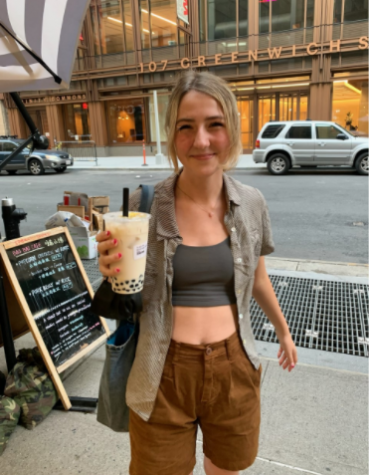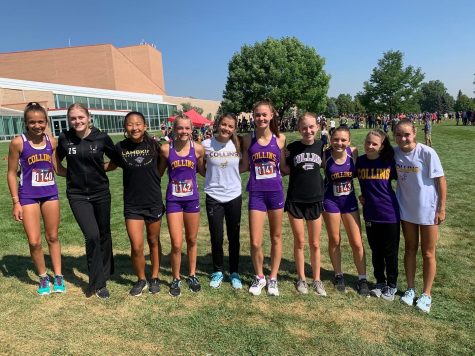SRO Epling protects, mentors students
March 30, 2023
Amid the bustling noise of a busy hallway, School Resource Officer Jason Epling monitors and observes the students, a big smile hidden slightly behind his bushy mustache. He is a familiar sight to those who wander the halls, worried about getting to class on time, or chatting with their friends. Some students roam past him without even a glance, but those who know the SRO, take the opportunity to chat as if he is a friend. As their faces light up, they greet Epling, who takes care to ask about them and their lives.
Epling’s day starts long before his daily hallway shift, however. Every morning at 8 a.m. he patrols in his car around school and surrounding areas, scanning for anything out of place, things as simple as an abandoned backpack. After his morning patrol, Epling makes his way into the school.
“It’s good practice,” he said, describing his routine of arriving at the building before classes start. “I like to greet the kids and say ‘hi’ in the mornings.”
Epling’s presence in the school serves not only as a friendly face, but as a signal to those who may be wanting to cause trouble that the school is protected. He mentions that even the sight of his black and white police vehicle parked in front of the tower wards off people who should not be around the school in the first place.
While simply being at and around the campus is a large part of Epling’s job, his day to day is filled with numerous different safety responsibilities. As part of the FCHS safety team, along with the deans, campus security officers, and Principal Penny Stires, Epling attends a weekly safety meeting in which they review upcoming events, safety protocols for said events, and individual students’ safety plans, which outline how some students should behave in school in order to maintain their own well-being and the well-being of those around them.
Epling’s work reaches far beyond his daily responsibilities, however.
“The SRO is a mentor and a counselor, and elect enforcement,” he explained. “If you do enough of the mentoring and the counseling, you do less of the enforcing.”
Epling’s mentorship is not without impact, and most of the students he now chats and jokes with in the halls are those who have previously had negative run-ins with law enforcement. A student once ticketed for driving without a license now consults Epling over how to look presentable in court.
Epling accredits his dedication to creating a positive impact on students to two things: wanting students to have a better relationship with law enforcement than he did in high school, and his love for his neighborhood.
“This isn’t just a job for me,” he explained. “It’s my community, and it’s important to me that students feel like they can trust me.”




John C. Epling • Mar 31, 2023 at 10:18 pm
We could not be more proud of our son! The person and man that he ha s become and the husband, father that he is to his wife, Christine and our grandson, Finley. Finley will be a Freshman there in the Fall. Thank you, for your article. It’s good to know that your grown children are making a difference in the lives of others and the community in which they live. That is what ‘Community Policing’ should look like!